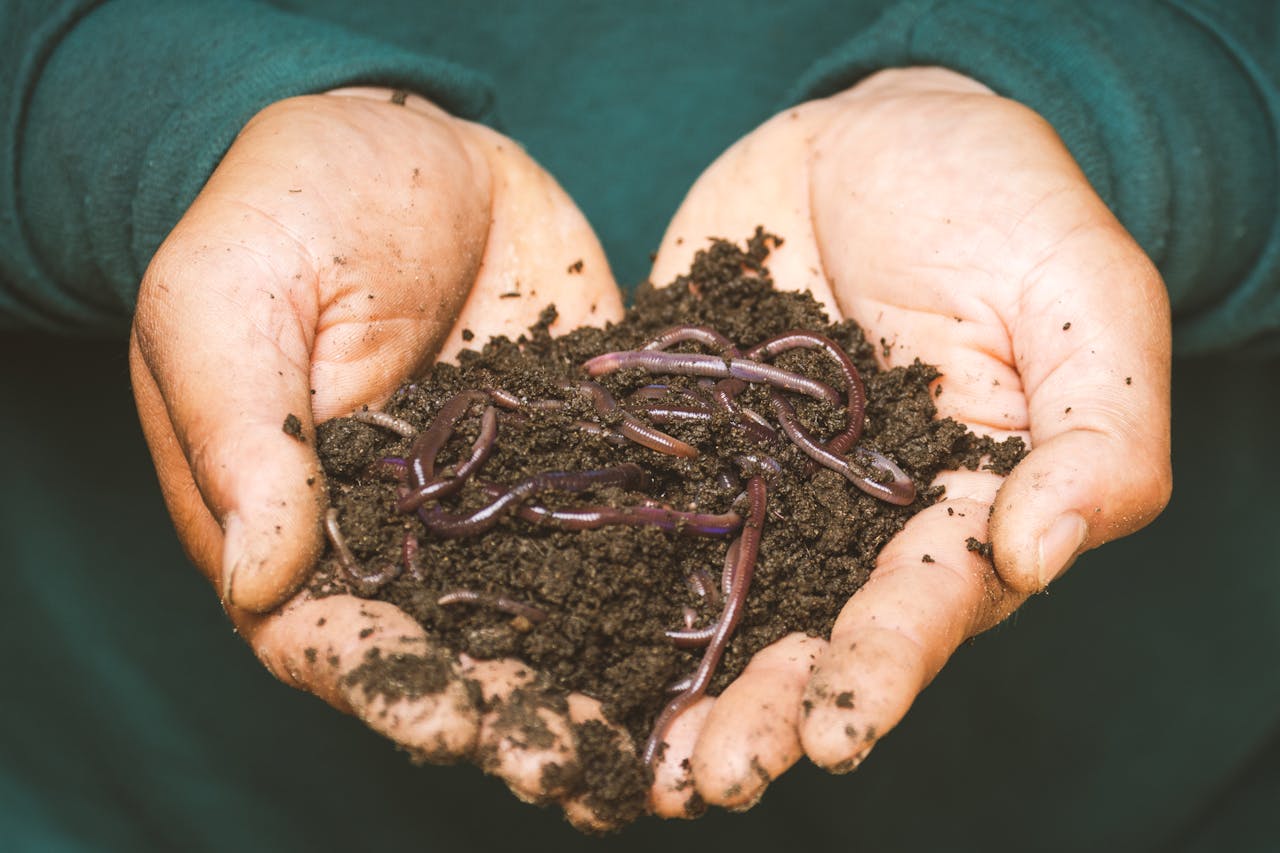
What is Composting and Why Do It?
Composting is the natural process of recycling organic waste, such as food scraps and yard trimmings, into a valuable fertilizer that can enrich soil and plants. By composting at home, you are not only reducing the amount of waste sent to landfills but also creating a product that can help your garden flourish.
Compost is a nutrient-rich material that can be added to soil to help plants grow. It is created by combining organic wastes, such as food scraps and yard trimmings, in a way that encourages decomposition. The resulting compost can be used as a fertilizer to improve soil health and structure, suppress plant diseases and pests, and reduce the need for chemical fertilizers.
Getting Started with Home Composting
To start composting at home, you'll need a few key items:
- A compost bin or pile (you can buy one or build your own)
- A good mix of organic materials, including both "green" and "brown" matter
- A location for your compost bin or pile that's convenient but not too close to your house
Your compost bin or pile should be at least 3 feet wide and 3 feet deep to allow sufficient space for the materials to decompose properly. You can purchase a compost bin at a gardening supply store, or easily construct one yourself using wood pallets, wire mesh, or even an old garbage can (with holes drilled in the sides for aeration).
When choosing a location for your compost, select a spot that is easily accessible for adding materials and turning the pile, but not right up against your house (to avoid any unpleasant odors or pests). A shady area is ideal, as too much direct sunlight can dry out your compost.
What to Compost
A healthy compost pile requires a mix of "green" organic matter, which is rich in nitrogen, and "brown" matter, which provides carbon. Aim for a ratio of about 3 parts brown to 1 part green.
Examples of green materials include:
- Fruit and vegetable scraps
- Coffee grounds and tea bags
- Grass clippings
- Plant trimmings
Brown materials include:
- Dry leaves
- Twigs and branches
- Shredded newspaper or paper
- Straw or hay
- Wood chips or sawdust from untreated wood
Avoid adding any meat, fish, dairy, greasy foods, diseased plants, or pet waste to your compost, as these can create odors and attract pests. Also avoid composting inorganic materials like plastics, metals, or chemicals.
Maintaining Your Compost
To keep your compost pile active and healthy, follow these maintenance tips:
- Alternate layers of green and brown materials to provide the proper balance of nutrients for microbes.
- Keep compost moist but not too wet. Your compost pile should be about as damp as a wrung-out sponge. Add dry materials or water as needed to maintain proper moisture levels.
- Turn the compost every few weeks using a pitchfork or shovel to mix the materials. This provides aeration that speeds up decomposition.
- Monitor the temperature of your pile using a compost thermometer. The ideal temperature range is between 130-150°F, which indicates that your pile is "cooking" and decomposing properly.
Harvesting and Using Your Finished Compost
You'll know your compost is ready to use when it looks like dark, crumbly topsoil and has a pleasant, earthy smell. This process typically takes anywhere from 2 months to a year, depending on how well you maintain the pile.
To harvest your finished compost, simply remove the top layer of fresh materials and scoop out the compost from the bottom of the bin. You can then add this nutrient-rich compost to garden beds, sprinkle it around the base of trees and shrubs, use it as a potting mix for container plants, or spread it across your lawn as a natural fertilizer.
The Benefits of Composting
Composting at home offers many benefits for you, your garden, and the environment:
- Enriches soil, helping retain moisture and suppress plant diseases and pests
- Reduces household waste by recycling kitchen and yard scraps
- Reduces dependence on chemical fertilizers
- Lowers your carbon footprint by diverting organic waste from landfills
- Saves money on garbage collection and store-bought fertilizers
By following these simple steps, you can easily start composting at home and enjoy the many benefits of this eco-friendly practice. Not only will you be recycling your organic waste, but you'll also be creating a valuable product that can nourish your garden, save you money, and help protect the environment. Happy composting!
 Family Craft ProjectsHome ImprovementCooking and BakingReuse and RecycleDIY GiftsEco-Friendly ProjectsDIY Home SolutionsSeasonal ActivitiesFun and GamesLearn TogetherPrivacy PolicyTerms And Conditions
Family Craft ProjectsHome ImprovementCooking and BakingReuse and RecycleDIY GiftsEco-Friendly ProjectsDIY Home SolutionsSeasonal ActivitiesFun and GamesLearn TogetherPrivacy PolicyTerms And Conditions
